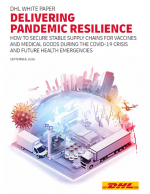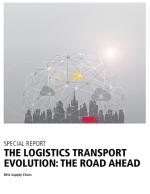Mobilizing Sustainable Transport for Development
Greater investment in greener, more sustainable transport systems is essential for propelling the economic and social development that is essential for achieving the Sustainable Development Goals, according to an expert panel report delivered to UN Secretary-General Ban Ki-moon.
Finding that global, national and local transport systems are hobbled by inefficiencies and a lack of sustainable investments, the expert panel issued this report entitled “Mobilizing Sustainable Transport for Development”, which provides 10 recommendations on how governments, businesses and civil society should re-direct resources in the transport sector to advance sustainable development.
The experts, members of the Secretary-General’s High-Level Advisory Group on Sustainable Transport, include representatives from aviation, road, rail, public transport and maritime industries and associations.
The recommendations address issues of policy, technology and financing and grew out of the diverse perspectives and practical experience of the panel.
The report found that a transformational change to sustainable transport can be realised through annual investments of around US$2 trillion, similar to the current ‘business as usual’ spending of US$1.4 trillion to US$2.1 trillion.
Investments in sustainable transport, the experts found, could lead to fuel savings and lower operational costs, decreased congestion and reduced air pollution. Additionally, it is estimated that efforts to promote sustainable transport can deliver savings of up to US$70 trillion by 2050.
A move to sustainable freight and passenger transport that includes integrated port terminals, well-planned airports and harmonized standards and regulations for efficient border crossings, could produce a global GDP increase by US$2.6 trillion.Writing in the report’s foreword, UN Secretary-General Ban Ki-moon noted that sustainable transport was essential to efforts to fight climate change, reduce air pollution and improve road safety.
“Sustainable transport supports inclusive growth, job creation, poverty reduction, access to markets, the empowerment of women, and the well-being of persons with disabilities and other vulnerable groups.”
Focusing on important issues such as road safety, traffic congestion and climate impacts, the expert panel’s 10 specific actions include the establishment of monitoring and evaluation frameworks, the promotion of sustainable transport technologies and the increase of international development funding.
The report calls for robust engagement by all stakeholders to ensure all members of society have access to jobs, markets, education and health care, through sustainable transport.
At present, the transport sector is responsible for approximately 23 per cent of energy-related greenhouse gas emissions, and 3.5 million premature deaths result from outdoor air pollution annually, mostly in low and middle income countries. About 10 to 15 per cent of food is lost during processing, transport and storage given a lack of modern facilities, trucks, access to refrigeration, and poor roads.
Nearly one billion people worldwide still lack adequate access to road networks, which increase isolation and marginalization and deepen social inequities. Over 1.2 million people are killed annually in road traffic accidents, causing in addition to human loss and suffering, billions of dollars of associated costs which amount, in some countries, to 1-3 per cent of GDP.“Transport can build prosperity in the broadest sense, enhancing the quality of life for all while protecting the environment and fighting climate change,” said Martin Lundstedt, CEO of Volvo and co-chair of the High-Level Group.
“We need bold innovation and a true partnership among governments, civil society and the private sector.”
“Sustainable Transport is crucial for the improvement in the quality of life of people both in cities and rural settings, at a national and international level,” stated Carolina Tohá, Mayor of Santiago, Chile and the other co-chair of the Group.
“Sustainable Transport enables people to access better services, jobs, opportunities and family connections. It is also a space where people spend a significant amount of time every day, and therefore it needs to consider safety issues as well as conditions of dignity for users. Leaving no-one behind in the context of Sustainable Transport means that in the coming decades we are able to build transport systems that are inclusive, integrated, gender-sensitive and that have people's needs at their core.”
What’s Related



Favorites





